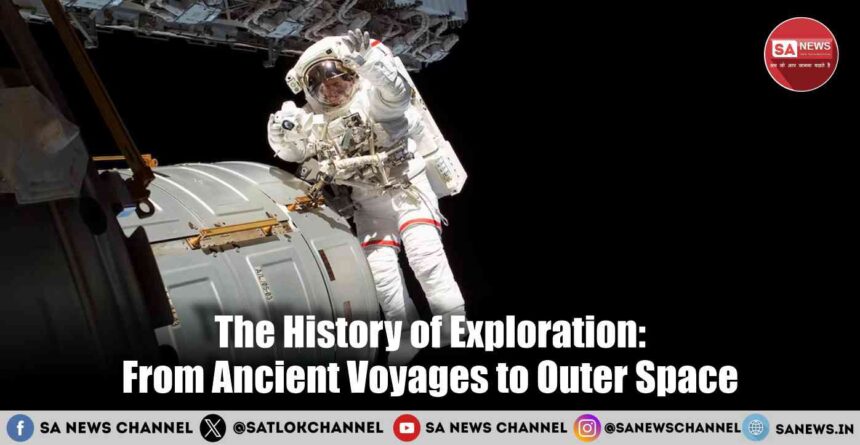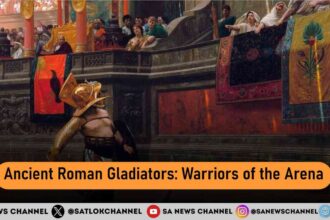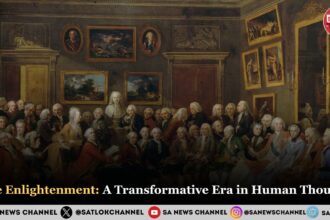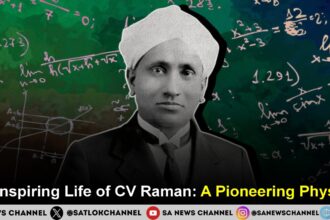Ever since humans first looked beyond the horizon, we’ve been driven by a powerful urge to explore the unknown. Whether sailing across vast oceans, trekking through dense forests, or mapping the stars, explorers have always pushed boundaries to discover what lies beyond. These bold journeys didn’t just change maps, they changed minds, cultures, and the future of humanity. In this article, we’ll take a closer look at the rich and often daring history of exploration, uncovering the people, stories, and moments that opened up our world and helped shape the one we live in today.
- The Earliest Explorers: When Curiosity Meant Survival
- Polynesians: The Underrated Navigators of the Pacific
- The Age of Discovery: Ambition Meets the Unknown
- Unsung Explorers: Voices From the Margins
- Scientific Exploration: Discovery for Knowledge
- Deep Sea and Polar Frontiers: Harsh but Inviting
- Space: The Final Frontier
- The Future of Exploration: Ethical, Inclusive, and Sustainable
- Conclusion: Exploration Is Who We Are
- The Spiritual Quest: From Physical Exploration to Divine Discovery
- FAQs about the History of Exploration
- 1. What motivated early explorers to venture into unknown lands?
- 2. Who were some of the greatest explorers in history?
- 3. How did explorers navigate without modern technology?
- 4. What role did scientific exploration play in history?
- 5. How has space exploration changed our view of the world?
- Connect With Us on the Following Social Media Platforms
The Earliest Explorers: When Curiosity Meant Survival
Long before maps and compasses existed, human beings were already on the move. It is believed that as early as 60,000 years ago humans began migrating and crossed continents, oceans, and mountains, adapting to climates and unfamiliar terrains. These early explorers were the first to learn that knowledge of the world could mean life or death.
By 2500 BCE, early civilizations such as the Sumerians and Egyptians had established maritime trade routes. Sumerian merchants sailed through the Persian Gulf to trade with the Indus Valley Civilization. These journeys were risky, but they brought spices, gemstones, culture, and knowledge across borders.
Polynesians: The Underrated Navigators of the Pacific
Often overlooked in Western-centric histories, the Polynesians were among the greatest navigators the world has ever known. Thousands of years before GPS or telescopes, they explored and settled islands scattered over millions of square kilometers in the Pacific.
Using canoes, celestial navigation, wind patterns, and the movements of birds and waves, Polynesian explorers reached faraway lands like Hawaii, New Zealand, and Easter Island. They didn’t just drift, they planned. Their knowledge was passed down orally, generation after generation. It was exploration rooted in wisdom and intuition, not conquest.
The Age of Discovery: Ambition Meets the Unknown
When we hear the word “exploration,” most people think of the Age of Discovery, a dramatic period from the 15th to 17th centuries, marked by European expansion.
- Prince Henry the Navigator of Portugal set the tone in the 1400s, sponsoring voyages along Africa’s west coast.
- Christopher Columbus, sailing under the Spanish flag in 1492, accidentally stumbled upon the Americas while seeking a westward route to Asia.
- Vasco da Gama, in 1498, successfully sailed around Africa to reach India, opening the sea route to Asia.
- Ferdinand Magellan led the first expedition to circumnavigate the globe (1519–1522), proving the Earth was far larger and interconnected than previously thought.
These explorers were driven by trade, religion, national glory and often by sheer human daring. But the Age of Discovery wasn’t just a tale of glory.
It was also the beginning of colonialism, resource exploitation, and the transatlantic slave trade. Native civilizations were disrupted, cultures destroyed, and millions suffered. The legacies of these voyages are still deeply felt today.
Unsung Explorers: Voices From the Margins
While European male explorers dominate history books, many other brave souls made monumental contributions.
- Matthew Henson, an African American explorer, was part of the team that reached the North Pole in 1909. Despite facing racial discrimination, Henson’s skills in navigation and Arctic survival were unmatched.
- Sacagawea, a Shoshone woman, guided Lewis and Clark through the American West. Her linguistic ability and intimate knowledge of the terrain helped make their journey successful.
- Ibn Battuta, a Moroccan scholar, traveled more than 75,000 miles across Africa, the Middle East, India, and China in the 14th century four times the distance covered by Marco Polo.
- Jeanne Baret, disguised as a man, became the first woman to circumnavigate the globe in the 18th century.
These names deserve just as much attention. Their stories show that exploration was never the domain of one race, gender, or nation. It was, and still is, a shared human pursuit.
Scientific Exploration: Discovery for Knowledge
By the 18th and 19th centuries, exploration had evolved from imperial ambitions to scientific inquiry.
- Naturalists like Charles Darwin joined voyages like that of HMS Beagle, not just to chart coastlines but to study biodiversity. Darwin’s observations in the Galápagos Islands led to his theory of evolution, one of the most transformative ideas in science.
- Similarly, Alexander von Humboldt, a Prussian explorer and geographer, traveled across Latin America, mapping ecosystems and inspiring generations of scientists. He laid the groundwork for the fields of ecology and climate science.
These expeditions showed that the value of exploration wasn’t just in gold or land but in understanding life itself.
Deep Sea and Polar Frontiers: Harsh but Inviting
As much as the skies called to us, so did the oceans and the poles.
- The Mariana Trench, the deepest point in Earth’s oceans, was first reached by Jacques Piccard and Don Walsh in 1960 in the submersible Trieste. Later, in 2012, filmmaker James Cameron made a solo descent, revealing stunning footage and mysterious sea life.
- In the Arctic and Antarctic, explorers like Roald Amundsen and Ernest Shackleton braved unimaginable cold. Amundsen was the first to reach the South Pole in 1911. Shackleton’s crew, trapped in ice, survived against all odds a tale of leadership and human endurance.
These regions reminded us that Earth still holds secrets, even today.
■ Also Read: The History of South America: A Journey Through Time
Space: The Final Frontier
On July 20, 1969, Neil Armstrong stepped onto the Moon, saying, “That’s one small step for man, one giant leap for mankind.” With that, humanity had left its home planet.
- The Space Race between the U.S. and the Soviet Union, while politically charged, sparked an explosion of scientific advancement. Satellites, telescopes, and interplanetary probes have since expanded our view of the cosmos.
- Space exploration today is more global, with agencies like NASA, ESA, ISRO, and SpaceX pushing boundaries. Plans for Mars missions and lunar bases are no longer science fiction.
But what drives it? Not just competition. The same old human urge: to know what lies beyond.
The Future of Exploration: Ethical, Inclusive, and Sustainable
Exploration today must grapple with new responsibilities. In the past, discovery often came at the cost of native lands, ecosystems, and ethical boundaries. But the modern explorer must balance curiosity with care.
- Digital Exploration: Thanks to technology, we can now explore ancient ruins, oceans, and planets virtually making exploration accessible to all.
- Inclusivity: More women, indigenous people, and scientists from developing countries are leading expeditions. Their perspectives enrich global understanding.
- Sustainability: Whether climbing Everest or exploring coral reefs, the focus is shifting toward protecting what we discover, not just documenting it.
- The explorers of tomorrow won’t just be adventurers, they’ll be storytellers, scientists, and stewards of the planet.
Conclusion: Exploration Is Who We Are
The history of exploration isn’t just a story about ships, satellites, or flags planted on foreign soils. It’s a story about our courage, our questions, our mistakes, and our triumphs. From the barefoot traveler crossing deserts to the astronaut orbiting Earth, we explore because we must. It’s in our DNA.
In a world that feels increasingly mapped, perhaps the next great journey is inward: understanding ourselves, our societies, and how we relate to the world around us. But wherever the path leads, one thing is clear exploration is far from over.
The Spiritual Quest: From Physical Exploration to Divine Discovery
The history of exploration, both in the physical world and the spiritual realm, has always been driven by the innate human desire for knowledge and fulfillment. Universal Spiritual Leader Sant Rampal Ji Maharaj emphasizes that true exploration begins within, with the search for the Supreme Divine Truth, the purpose of life, and the eternal soul. While modern exploration has taken us to the moon and the deepest oceans, Sant Rampal Ji explains that no matter how far we go externally, the real journey is inward toward the discovery of the Supreme God and eternal peace.
In the future, as scientific progress continues, humanity will increasingly realize that true fulfillment lies not in material achievements but in spiritual enlightenment. Lord Kabir Sahib Ji and Sant Garib Das Ji Maharaj have long taught that the highest purpose of life is to know and worship the Eternal God. Their messages are now being clearly revealed through the teachings of Sant Rampal Ji Maharaj, who presents the essence of all scriptures with logic, evidence, and clarity.
To truly understand this divine path and uncover the mysteries of creation, life, and liberation, we encourage you to read the spiritual books written by Sant Rampal Ji Maharaj, such as Gyan Ganga and Jeene Ki Raah. You can also download the ‘Sant Rampal Ji Maharaj’ mobile app to access free books, discourses, and spiritual content that offer life-changing knowledge and answers to humanity’s deepest questions.
FAQs about the History of Exploration
1. What motivated early explorers to venture into unknown lands?
Early explorers were often driven by the need for resources, trade routes, and territorial expansion. Curiosity, survival, and the desire to discover new opportunities also played significant roles. For example, Columbus sought a direct route to Asia, while Magellan’s expedition aimed to prove the Earth’s roundness.
2. Who were some of the greatest explorers in history?
Some of the most renowned explorers include Christopher Columbus, who discovered the Americas, Marco Polo, known for his travels to China, Vasco da Gama, who found a sea route to India, and Neil Armstrong, the first person to walk on the Moon.
3. How did explorers navigate without modern technology?
Ancient explorers used natural tools such as the stars, the sun, and wind patterns for navigation. Polynesians, for example, relied on their deep understanding of the sea and sky, using the positions of the stars, ocean currents, and birds to find their way.
4. What role did scientific exploration play in history?
Scientific exploration expanded human knowledge about nature, geography, and biology. Explorers like Charles Darwin and Alexander von Humboldt made significant contributions, with Darwin’s work on the Galápagos Islands shaping the theory of evolution, while Humboldt’s travels helped lay the foundation for ecology.
5. How has space exploration changed our view of the world?
Space exploration has revolutionized our understanding of the universe. The Apollo missions, especially the moon landing by Neil Armstrong, proved that space exploration is possible and sparked interest in the study of planets, stars, and galaxies. Modern space programs continue to push the boundaries of science and technology.









